Related Issue 1: To what extent should globalization shape identity?
| Site: | MoodleHUB.ca 🍁 |
| Course: | PAVE Social 10-1 |
| Book: | Related Issue 1: To what extent should globalization shape identity? |
| Printed by: | Guest user |
| Date: | Sunday, 30 November 2025, 8:56 AM |
Description
Relate Issue 1: Globalization, My Community, and Me
To what extent should globalization shape identity?
Table of contents
- Should Globalization Shape Identity?
- What is My Language?
- How does my language reflect who I am?
- Arts and Attire
- Globalization, Values and Beliefs
- Globalization of Style
- Cartoon
- Globalizing Forces and Their Impacts?
- Is Globalization an Opportunity or Challenge?
- Media Giants
- Promotion of Culture and Language- Canada's CRTC
- Terminology Quiz
- The Future of Collective and Individual Identities
- Unit Test
Should Globalization Shape Identity?
Before you begin the lesson: Remember, you can use the Read Write for Google Chrome tool to help you get through the reading portion of the lessons! It looks like this: ![]() at the top right corner of your Chrome browser.
at the top right corner of your Chrome browser.
Here is a schedule for the Unit.
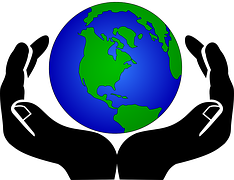
Throughout this course you will be given terms. Understanding bolfaced words will aid your understanding of the chapter issues. Take note- there will be a quiz on these terms!
globalization: a process by which citizens become more interdependent with increasing economic, political, and social contact with citizens beyond their border
This course is designed to increase your understandings about globalization. The word globalization exists in almost any language and is present in almost any discussion; whether about politics, economics, or even your music preferences. What is globalization and why are we talking about it so much? Globalization is considered by many people as a phenomenon of increased contact with and dependence on peoples and communities, close and far away. This contact can build alliances and economic relationships, share knowledge, and increase awareness of and familiarity with others in the world. Communication, transportation, and media technologies have rapidly advanced this contact in the twenty-first century. The impact of this increasing contact creates much debate.
People hold different perspectives on globalization. People whose lives are impacted negatively by aspects of globalization may oppose its ever increasing influence. People who connect a high quality of life to globalization may embrace it. Globalization originated when people travelled farther and farther beyond the borders of their own community in the interest of trade. More than goods and profits returned to the community.
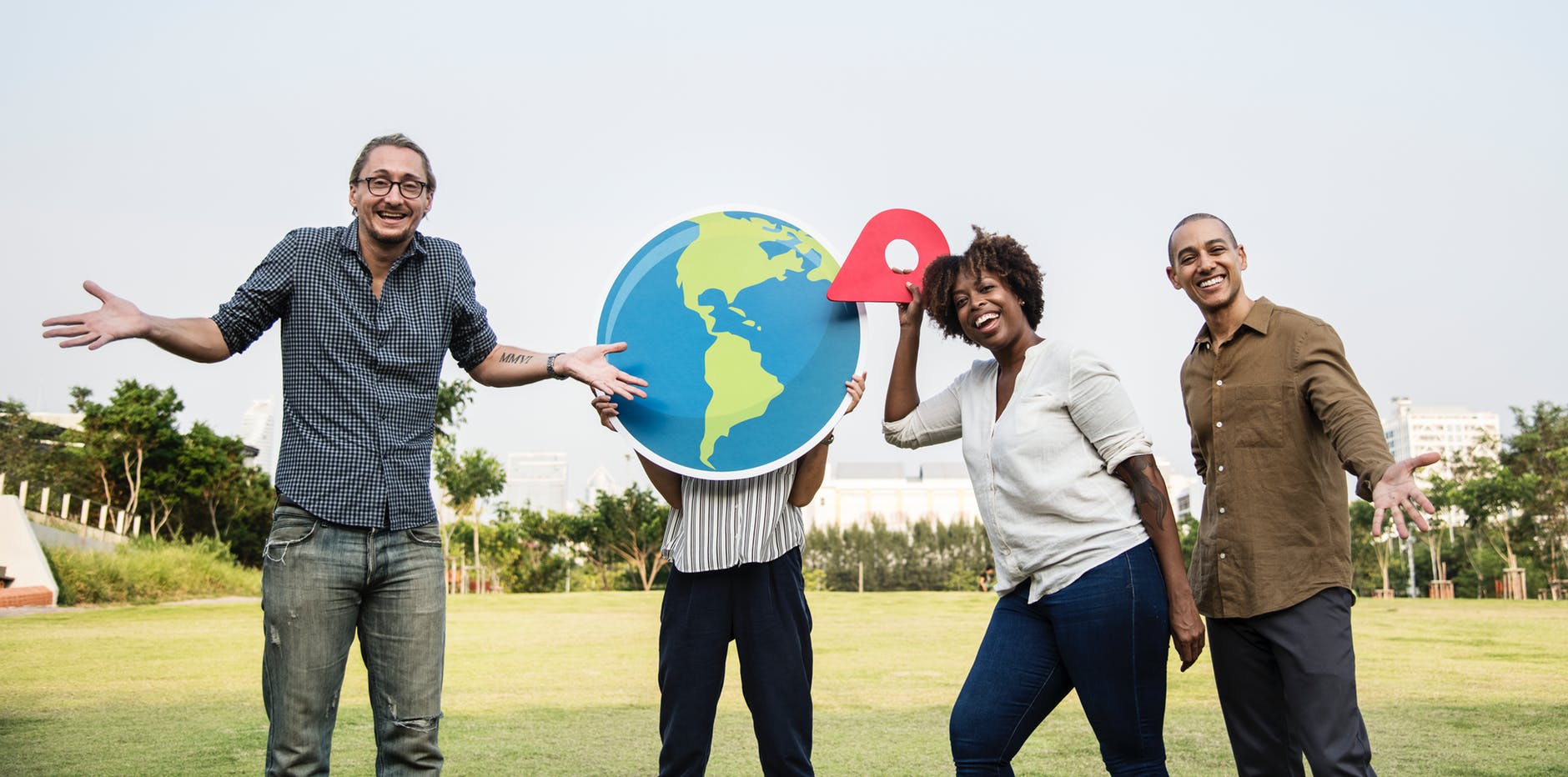
Today, we see the influence of globalization in what we believe in, how we live our lives, how we think, how we dress, and what we eat and watch. Globalization also brings what is happening elsewhere closer to our own community. This connection to others in the world leads to key questions about citizenship and identity.
Who are we and what rights and responsibilities do we hold?
As we become increasingly interconnected and interdependent in a globalizing world, will we identify ourselves as citizens of the world and respond as global citizens?
What about our connection to our own community?
Will our identity and ways of life change because of globalization? Is it possible to retain our identities as Canadians and be global citizens?
Because of the many complexities of globalization, this is a challenging question for you to try to answer in this course.
To what extent should we embrace globalization?
Social Studies 10-1 © 2008 Alberta Education
What is My Language?
Your individual identity can be easy to describe or it may be very complex. Who you are can be connected to your community, your language, your values and beliefs—even to how you dress and the activities you prefer. Often people think of their individual identity as a matter of personal choice. When the influences of globalization in the twenty-first century are examined, you may find that global contact and connections can also influence your personal choices about who you are. Understanding the forces of globalization and how they shape who you are, both individually and collectively, is the focus of this section.
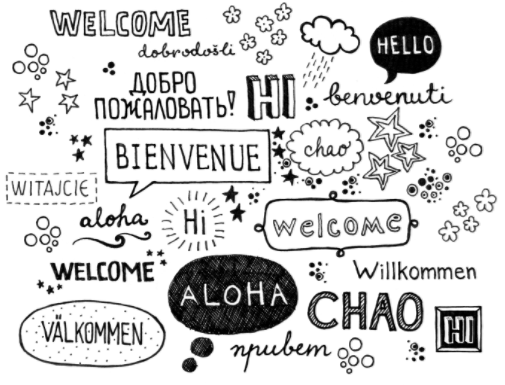
Language can connect people with friends and family. When you communicate in a language you share, you can feel included and part of a group. It can define who you are. Think about the language you speak. Do you speak several languages? What does the language you speak say about who you are? Are there words you use that identify where you are from? Your age? Your interests?
You may have words and names you use that are unique to your family and friends. You may also find that much of your language is made up of vocabulary used elsewhere in the world. This may be due to globalization. Language, like many other products and trends, can travel beyond borders in a globalizing world. This can have a uniting impact when people are able to understand and communicate in the same language. It can also alter identities and affect the languages people speak. For many Canadians, language is an expression of their identity. The loss of their unique language can lead to the eventual loss of their unique culture and identity.
Language can be more than just communication between people. It communicates who they are.
What is my language?
How does my language reflect who I am? Throughout this lesson, think if language is used to reflect your identity, both individual and collective. Does it connect you to your community and your world? Will increased global contact change your language and who you are?
collective: related to members of a group that share common characteristics such as language, culture, and identity
community: a group that shares a connection to the same region or the land

Read
Pages 26 to 38 in Perspectives on Globalization.

Reflection
Please complete your Language Reflection
Assignment
Lesson Summary
Does your language say who you are? In this lesson you recognized that for many people, language is their identity. It shares views and understandings of the world. It connects you to your community. It transmits knowledge and culture. Your language is not immune from the impact of globalization. Globalization can allow you to communicate globally with others who share your language, or it can erode the uniqueness and the sustainability of your language. This can change who you are and your culture. For many Aboriginal and Francophone people in Canada, without their unique language, it affects how they live their lives and their quality of life.
Understanding this related issue can help you respond to the module question: To what extent should globalization shape identity?
How does my language reflect who I am?
As individuals and collectives you can express identity through language; your identity may also reflect the values and ideas you hold as important. You may have ideas about religion, spirituality, beliefs, and the connection to the land that you share with your family and community. Your role models may have an impact on whom you are or want to be. Explore the role of these ideas in how collectives and individuals express their identities. Afterward, examine the impact that increased global contact between these diverse values and ideas may or may not have on your identity.


How does my language reflect who I am? Throughout this lesson, think if language is used to reflect your identity, both individual and collective. Does it connect you to your community and your world? Will increased global contact change your language and who you are?
Assignment
Open How does my Language Reflect Who I Am? assignment.
Extension
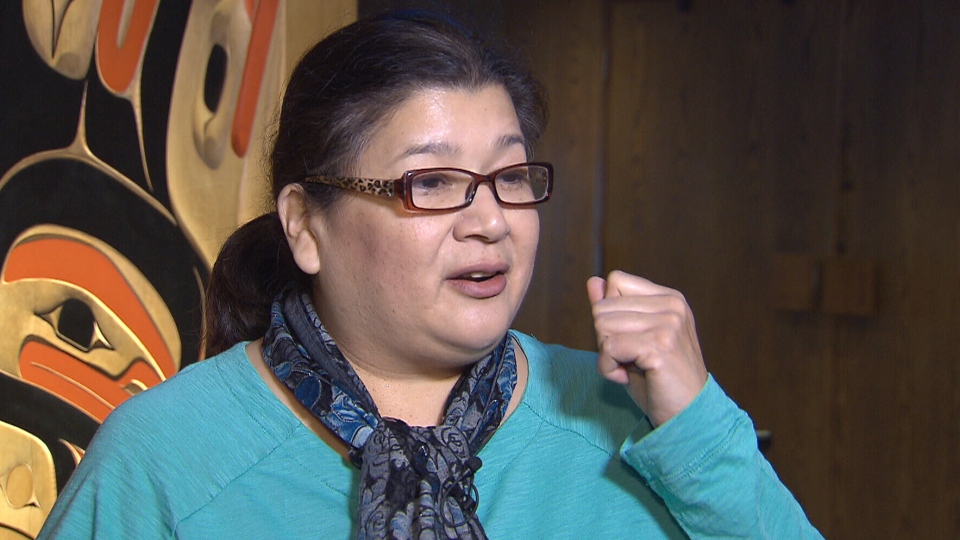
Reflection
Lesson Summary
Identities can express many things. As in the lesson on the relationship between language and identity, your choice of words can reflect where you are from. Your beliefs can reflect who you are. You can observe values, beliefs, and connection to the land in the identities of those around you. Some of these ideas and beliefs are passed down by your family over generations. You may choose more values and beliefs from other peoples and communities as communication and transportation technologies allow you to observe and exchange diverse values, beliefs, traditions, and ideas. This can result in both unique and shared expressions of identity for both individuals and collectives. This may also challenge which values and ideas will shape identities in the future.
Arts and Attire
What does my style say about my identity?
What’s your style? Your preferences in clothes, music, and the arts may reflect more than what you like. Think about what your choices may reflect about who you are, where you are from, and where you belong. Perhaps your choices are more than personal. They may be a way to tell the world about your identity and your tie to your community. You will explore how individuals and collectives express a sense of who they are through clothes, music, art, literature, and dance.
Examine the arts and attire of individuals and collectives presented in this lesson. The arts and attire may express the values, ideological beliefs, traditions, role models, religion, spirituality, and connection to the land of individuals and groups. These expressions may be unique to the community and collective. Individuals in the community may use these expressions to demonstrate a sense of belonging.
In a globalizing world, as transportation and communication technologies increase the access and availability to diverse arts and attire for citizens around the world, some observers say that people may be approaching a universal set of expressions of identity or that they may be observing the emergence of new expressions that are a hybrid of many expressions. Does this mean that if, as an individual, when you make personal choices about the arts and your attire, your own collective expressions may be lost as newer global expressions become popular? Keep this in mind as you explore expressions of identity.

Read
Pages 39-42 in your Perspectives on Globalization textbook.
Multimedia
Arts and attire are the most visible expressions of creativity and style. What do they express about individual and collective identities? Check out some of the various styles here.
- Mayan Traje
- Inuit Attire
- Burma
- Page 40-42 in your textbook about The Maori Art of Ta Moko and The Revival of Maori Culture about individual and collective identities.

Reflection
Open this reflection activity here- Globalization of Style. Not for marks but important!
Assignment
Your assignment in called Arts and Attire.
Summary
Expressions of identity hold complex meanings. They may be an expression of individual freedoms and tastes. They may express your collective understandings and your membership in a unique group. They are outward signs to people about who you are. Increased global contact can share who you and your community are to others, but they can also open your unique expressions to change. As a result, expressions of identity can evolve and identities can evolve in a globalizing world. You can embrace a universal identity or resist the erosion of your unique collective identity. Who you are now may not be the same as globalization increases in influence.
Globalization, Values and Beliefs
What do my values and beliefs say about my community and me?
As individuals and collectives can express identity through language, your identity may also reflect the values and ideas you hold as important. You may have ideas about religion, spirituality, beliefs, and the connection to the land that you share with your family and community. Your role models may have an impact on whom you are or want to be. Explore the role of these ideas in how collectives and individuals express their identities. Afterwards, examine the impact that increased global contact between these diverse values and ideas may or may not have on your identity.
Reflection activity

Joane-Cardinal Schubert is a Kainai artist from Alberta whose art reflects her Aboriginal identity, experience, and perspective.
Open reflection activity here: Before and After
Read
What values and beliefs shape the Hmong identity? Re-read page 33 in Perspectives on Globalization.
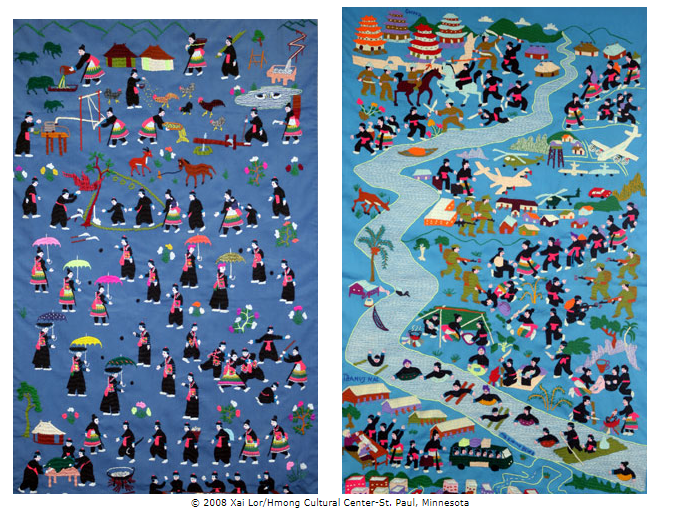
What values, beliefs, and traditions are woven into the scenes?
Assignment
Find your Assignment Globalization, Values and Beliefs here.
How much impact has global contact and exchange made on the values, beliefs, traditions, role models, religion, spirituality, and connection to the land of collectives and individuals?
Extension
What values and beliefs are expressed in the arts and culture policies promoted by the Canadian government? Read more about arts and culture in Canada in the document "Culture & Heritage: Connecting Canadians Through Canada's Stories" on the Canadian Heritage website.
https://www.canada.ca/en/services/culture/canadian-identity-society.html
Globalization of Style
Check out this video

Your individual identity can be easy to describe or it may be very complex. Who you are can be connected to your community, your language, your values and beliefs—even to how you dress and the activities you prefer. Often people think of their individual identity as a matter of personal choice. When the influences of globalization in the twenty-first century are examined, you may find that global contact and connections can also influence your personal choices about who you are. Understanding the forces of globalization and how they shape who you are, both individually and collectively, is the focus of this section.
Key Terms:
Who you are may be shaped by the languages you use. The ideas and beliefs you learn from your family and community over generations can shape who you are. In a globalizing world the emerging communication and transportation technologies may also influence how you presently act, speak, and dress. The choices may appear limitless, but with those choices are also understandings that global contact and connections influence how unique identities are or will remain in the future.
belief: a fundamental view associated with religion, spirituality, or an understanding of the world that is held as truth
collective: related to members of a group that share common characteristics such as language, culture, and identity
community: a group that shares a connection to the same region or the land
forces of globalization: action or influence that drives the process of global contact and interdependence
globalization: a process by which citizens become more interdependent with increasing economic, political, and social contact with citizens beyond their border
individual: related to one person
identity: characteristics that distinguish the uniqueness of an individual or group
value: an idea or belief that is held as important
Reflection
This is a required activity to support your inquiry but is not graded. Reflect on the following questions to guide your creation of the assignment below.
- To what extent are these identities a reflection of who you are?
- In your view, which similarities are due to global contact and connections between different countries and diverse peoples?

Assignment
Expressions of identity hold complex meanings. They may be an expression of individual freedoms and tastes. They may express your collective understandings and your membership in a unique group. They are outward signs to people about who you are. Increased global contact can share who you and your community are to others, but they can also open your unique expressions to change. As a result, expressions of identity can evolve and identities can evolve in a globalizing world. You can embrace a universal identity or resist the erosion of your unique collective identity. Who you are now may not be the same as globalization increases in influence.
Cartoon
How does globalization affect economic, social, and political aspects of our lives?
Trade, communication, and technology have increased global interactions. The process of globalization is very complex. You will find diverse understandings and reactions for this concept. Read the textbook to begin with an understanding of what globalization is. Many people think of globalization as an economic force, but there are also social and political aspects. Write down how globalization is defined and what forces of globalization are evident in the lives of people. Check your answers prior to beginning the Explore. These understandings will help you to further examine the relationship between identity and globalization.
economic: related to the production, distribution, and consumption of goods and services
social: related to the interaction between individuals and groups
political: related to government, authority, and the carrying out of actions on behalf of the citizens

Read
Examine the diagram “Economic, Social, and Political Globalization” on page 6 in Perspectives on Globalization.

Assignment
Open your Cartoon Assignment here.
Reflection
- Are you globally connected?
- If yes, in what ways?
- If not, why not?
Contact with communities outside of your borders is not just a twenty-first-century activity. For economic, political, and social reasons, members of diverse communities established contact and relationships that fostered trade and the exchange of ideas, beliefs, and traditions.
Globalizing Forces and Their Impacts?
Contact with communities outside of your borders is not just a twenty-first-century activity. For economic, political, and social reasons, members of diverse communities established contact and relationships that fostered trade and the exchange of ideas, beliefs, and traditions.
Examine the map. Identify the global contacts connected to manufacturing regions.

In varying degrees, these global contacts and connections influence social, political, and economic aspects of your life. For many, the global connections are evidence of globalization at work. Globalization may drastically change the ways of life of a community and cause the loss of tradition, language, and sovereignty. On the other side of the debate, globalization can offer the opportunity to a generation of people of a better quality of life at a much more rapid rate than ever before in history. Gather some background on what these globalization influences are and how they impact people. You will further explore in the next module whether these influences are opportunities or challenges to the identities and citizenship of people.
economic: related to the production, distribution, and consumption of goods and services
political: related to government, authority, and the carrying out of actions on behalf of the citizens
quality of life: social, economic, and political conditions that contribute to the satisfaction people have with their lives
The struggle to access food, clothing, and shelter may reflect a low quality of life. A high quality of life may reflect the balance between work and leisure.
social: related to the interaction between individuals and groups
sovereignty: authority or power to rule
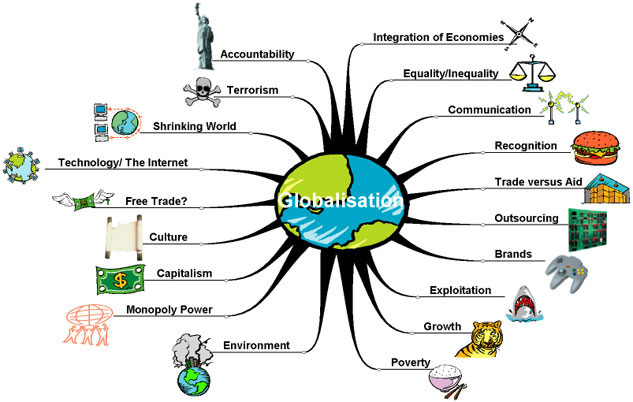
Read
Read pages 9 to 23 in Perspectives on Globalization.
Look closely at the cartoon on page 17. What does this cartoon suggest about the idea that some people in Canada think globalization is something that happens to other people in other places?

Reflection
Please complete, not for marks but important for your understanding.
Assignment
Globalizing Forces and Their Impacts
People and activity shape globalization and in turn, globalization shapes people and their ways of life. Globalization began when individuals and nations established contact outside of their borders. These contacts resulted in the exchange of goods, services, and ideas. As trade grew in importance amongst individuals and nations, globalization increased. Globalization rapidly connects people globally as technology in communication, transportation, and production increase the speed and quantity of global contacts. Globalization is now considered a force that has evolved and continues to evolve. It can appear as an economic, social, or political force with impacts on economic, social, and political dimensions of people’s lives and identities.
Forces of economic, social, and/or political globalization are influences from beyond the borders of communities. For Canadians, globalization can have little or immense impact on their daily lives and who they are. Globalization can become a tool to preserve or sustain distinct cultures and languages, or it can eventually erase unique characteristics of a community as people increasingly share similar aspects of daily life with other communities. It is important to determine to what extent people should embrace globalization both for those who value their distinct identity and for those who believe that one shared global identity is vital to ensuring a quality of life for all citizens of the world.
Is Globalization an Opportunity or Challenge?
To what extent is globalization an opportunity and/or challenge to identity and culture?
As global contact and connections increase, individuals and groups question if globalization will enhance or limit the opportunities to express unique identities and cultures. In this inquiry you will examine global trends and possible influences they may have.
The forces of economic, social, and political globalization will affect individuals and groups in varying degrees. In this lesson you will examine the impacts of these forces on culture and identity. From the perspectives of the group, is globalization a force of opportunities or challenges?
The impacts are often categorized as effects of acculturation, accommodation, cultural revitalization, affirmation of identity, integration, assimilation, marginalization, and/or homogenization.
To better understand these effects, click to view Identity and Changes (Learn Alberta- LA410/6943). The slide show includes many terms about the effects on individual and collective identity. You may replay the presentation as many times as necessary.

Read
Read three of the following in Perspectives on Globalization
- Read about the opportunities and challenges of urban growth and megacities on pages 94–97 in Perspectives on Globalization.
- Read about the opportunities and challenges for cultural identities on France on pages 86–88 in Perspectives on Globalization.
- Read about the opportunities and challenges to the identity of Lubicon Lake Nation in Alberta on pages 84–85 in Perspectives on Globalization.
- Read about the opportunities and challenges to the identity of the Guuguwarrra Nation in Australia on pages 82–83 in Perspectives on Globalization.
- Read about the opportunities and challenges to the identity of the Quechua people of the Andes on page 100 in Perspectives on Globalization.
- Read about the opportunities and challenges to the identity of the Inuit of Nunavut on pages 104–105 in Perspectives on Globalization. Pay special attention to this! We will do a reflection on it!
- Read about the opportunities and challenges to the identities of Francophone communities on pages 106–110 in Perspectives on Globalization.
Reflections
Continuity and Changes Examine cultural borrowing and reflect on the original cultural use and significance and how it has changed because of global exchange.
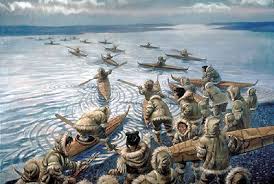
Assignment
Lesson Summary
Whether globalization affects people economically, socially, or politically, the outcomes for a group’s culture or language will vary. Drastic economic, social, or political impacts of globalization may lead to language and cultural loss for a collective identity. There are also opportunities to embrace and sustain a unique culture and language through the technologies that globalization can offer.
Media Giants
What is the impact of media and communication technologies on diversity?

Access to new media and communication technologies is very evident in entertainment, quick global contact at your fingertips, and in the pop culture side of the everyday lives of many people. This aspect of globalization influences economic, social, and political dimensions of society. These technologies can unify a community across great distances and geographical obstacles. With these tools, people can instantly be informed by a click of a mouse or a tap of a finger. These tools also create opportunities and challenges to maintaining unique cultures and languages. Some who view globalization as limiting predict that these technologies will develop a homogenized pop culture that will dominate diverse cultures. Those who recognize the potentials of globalization use these technologies to establish a space for the maintenance of their culture, language, and identity in a globalizing world.
Read
Find out what these media and communication technologies are, their impacts on collective identity, and how groups have responded to these technological influences. Read the Chapter Focus on page 46 of Perspectives on Globalization.
Reflection
- Name five favourite movies.
- How many of your choices of songs, television, shows, and movies are made in or outside of Canada?
- How are your choices affected by the impacts of media and communications technology?
Read
Read Universalization of Pop Culture and Hybridization on pages 49 to 57 in Perspectives on Globalization.
Check out the cartoon on page 54- What does this cartoon imply about what many Canadians would rather watch on television?

Multimedia
Which multinationals are in the business of creating a global village of communication, entertainment, and information?
Click HERE to find out! What services do they provide? List the areas of influence of these multinationals.

Assignment
Please open your Media Giant assignment here.
Please watch this 58 minute clip.
Promotion of Culture and Language- Canada's CRTC
How effective are the efforts to promote culture and language in a globalizing world?
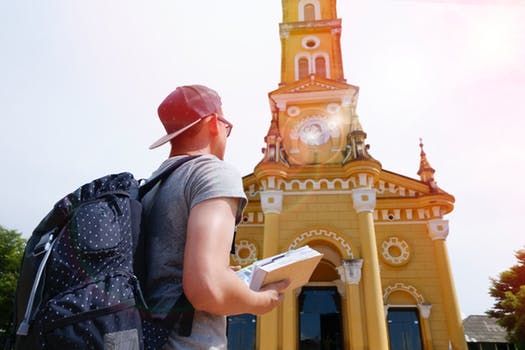
Cultural places, traditions, values, and beliefs are key to the collective identity of a group. These aspects can be challenged by the influences of economic and political globalization. In response to the challenge of globalization, individuals and groups attempt to develop strategies that will reduce or eliminate challenges to their culture and language. These strategies are implemented locally, nationally, and globally. You will examine and assess how effective these strategies are in meeting the needs and concerns of collective identities in a globalizing world.
Globalization offers opportunities to gain international acclaim and to develop global awareness of an Indigenous cultural form and language. Examine this opportunity. Consider how the emergence of a new artist on the global music scene can be supported by media technologies such as the Internet and the production and distribution of CDs and downloads. An artist’s particular music form can now travel far beyond her or his borders.
What are the strategies, and how effective are they in maintaining culture and language?
Many collective identities have responded to the influences of globalization to preserve and maintain their culture and language in the face of assimilation and homogenization. There is a variety of responses and degrees to which they succeed in keeping culture and languages viable in a globalizing world.
Read
Read pages 56 to 67 in Perspectives on Globalization.
The textbook features many collective identities and strategies. Read the assigned pages.
Select ONE collective identity’s response to read about in more detail.
-
Read Languages of the Land – An Overview of Aboriginal Language Strategies. What strategies are presented to revitalize languages in Michif, Inuktituk, Mi'kmaq, Maori, and Navajo?
-
In 2005, the CBC website presented a story on the efforts of the former president of France, Jacques Chirac, to safeguard the French language in a globalizing world. How could an all-French-language news network, such as France 24, be a strategy to maintain the French language?
-
The Catalan language is recognized along with Spanish official languages in Catalonia and Valencia, regions within the country of Spain. In Catalan perspective, the vitality of the Catalan language is criticial to the survival of the Catalan identity. Television is one such effort to maintain the language for over 12 million Catalans. How effective is a Catalan television network in maintaining the Catalan language and culture?
-
Read the article "To Grandparents, English Word Trend Isn't 'Naisu'."
Reflection
What conclusions can you make about the effectiveness of cultural and language promotion in a globalizing world?
Now complete Promoting Artists in a Globalizing World (not for marks but important!)

Assignment
Economic, social, and political forces of globalization have created the need for strategies at the local, national, and global levels to respond to challenges to culture and language. Many of these strategies take advantage of the opportunities that media and communication technologies can offer. National governments and international organizations respond with political initiatives to overcome the risks of assimilation, homogenization, and marginalization to unique cultures and languages. The effectiveness of such strategies differs. For some collective identities, it is leading towards culture and language revitalization. For others, it continues to be a search for solutions.
Terminology Quiz
So far in this unit you have covered a range of terms. Please take the matching quiz on these terms.
The Future of Collective and Individual Identities
What new understandings have you gathered at the end of this section to help you respond to this issue?
In a globalizing world, there may be many opportunities and challenges to expressing who you are and want to be. Aspects of your individual identity may be of personal choice or shaped by one of several collective identities that may be a part of your community. The future of your individual and collective identities may depend on the forces of globalization. Identities may strengthen as people use the forces of globalization to celebrate or affirm their identities. Media and communication technologies may be twenty-first-century tools that will complement efforts to maintain identity. The identities of some groups, however, may find limited opportunities if the forces of globalization lead to the assimilation and homogenization of their culture and language. These groups may need to rely on strategies to respond to the overwhelming influences of globalization. The response in favour of or against globalization is not always easy because of the many diverse experiences with globalization.

Assignment
Your final assignment The Future of Collective and Individual Identities.
Unit Test
You are now ready for the Unit One test. It is a 46 questions Multiple Choice Quiz. Give yourself at least 2 hours to complete.
This quiz must be supervised and no books/online resources are to be used.
